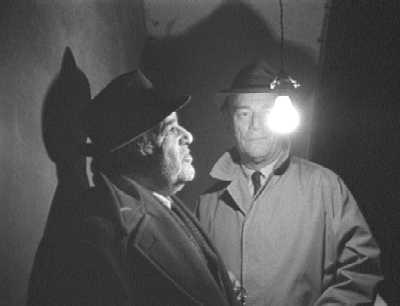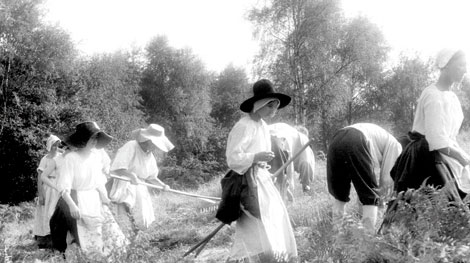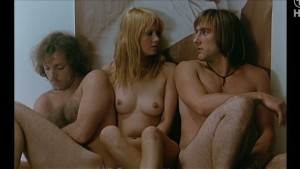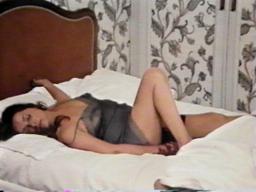Commissioned by Richard Porton and written for (and published by) On Festivals: 03 (Dekalog), edited by Richard Porton, New York: Columbia University Press, 2009. Because of the length of this, I’m running it in two parts. — J.R.

I’m pretty sure the first film festival I ever attended was the third New York Film Festival, at age 22 in fall 1965, to see Alphaville. In 1963, I probably would have attended the first New York Film Festival if I hadn’t transferred from Washington Square College to Bard College, two hours up the Hudson, about half a year earlier. Later that same year, I took over the Friday night film series at Bard, but every once in a while I’d forego one of my own selections in order to take a weekend trip to New York and see something new I was especially curious about; my first looks at Muriel and Dr. Strangelove were during two such excursions. And my curiosity about what Jean-Luc Godard would do with science fiction was enough to persuade me to hop on the train or catch a ride with a classmate. As it turned out, I found the film silly, not really understanding most of its allusions to contemporary Paris or German expressionist cinema. Read more
The British Film Institute’s Roma Gibson recently contacted me about reprinting a review of Kevin Brownlow’s Winstanley (1976) that I included in my “London Journal” for Film Comment (January-February 1976) with the BFI’s forthcoming DVD release of the film. I responded by requesting that she substitute a couple of lines from my Time Out capsule review of the same period for the last couple of lines in my already somewhat hyperbolic Film Comment review, and she agreed.
I thought it might be instructive for me to reproduce that composite review and then juxtapose it here with “Time Traveler” — my April 23, 1999 Chicago Reader review of Winstanley and Brownlow’s preceding feature, It Happened Here, which explains some of the polemical context that provoked some of the hyperbole in my earlier reviews. —J.R.

There’s really not much to be said for Winstanley, except that it’s the most mysteriously beautiful English film since the best of Michael Powell (which it resembles in no other respect) and the best pre-twentieth-century historical film I can recall since The Rise of Louis XIV [Rossellini] or Straub-Huillet’s Bach film [Chronicle of Anna Magdalena Bach]. I know that sounds like hyperbole, but I can’t help it. Read more
From Monthly Film Bulletin, December 1975 (Vol. 42, No. 503). I think I must have permanently jinxed the possibility of ever becoming a friend of Pauline Kael’s by introducing myself to her after the New York Film Festival’s press screening of Get Out Your Handkerchiefs in 1978. Clearly enraptured, she promptly asked me what I thought of the film, and I replied, “Well, at least it’s better than Les valseuses,” which she deeply revered as well. — J.R.

France, 1974
Director: Bertrand Blier

After harassing a woman in the street and stealing her purse, Jean-Claude and Pierrot steal a Citroen for the afternoon; when they return it, the hairdresser owner holds them at gunpoint until they manage to escape during a scuffle, taking the hairdresser’s girlfriend Marie-Ange with them. Pierrot, however, is shot in the groin; the two force a surgeon to treat the wound and then take his money. When they abandon another stolen car to hop a train, Jean-Claude pays a young mother to suckle Pierrot before she gets off to meet her soldier husband. They take another train to the town of Briddle, where they break into a house whose owners are away but where they excitedly discover the underwear of teenager Jacqueline. Pierrot continues to fret about being impotent, and is annoyed when Jean-Claude forcibly sodomises him; they visit Marie-Ange and take turns having sex with her, although she remains frigid. Read more




